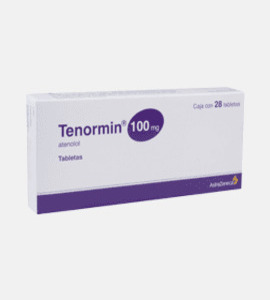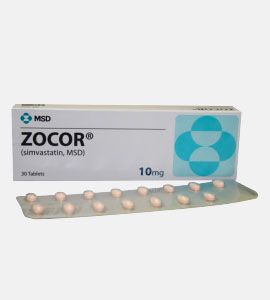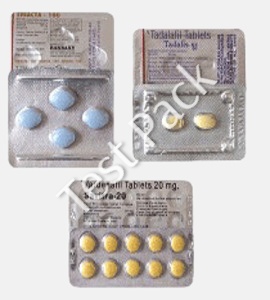Description
Common use
Tenormin is a beta-adrenergic blocking agent. Its role is to blocks the effects of adrenergic drugs, such as adrenaline or epinephrine, on nerves of the sympathetic nervous system. Tenormin reduces the heart rate and used it treatment of abnormally rapid heart rhythms, arterial hypertension, angina, acute myocardial infarction, tachycardia (different types), ventricular fibrillation and others.
Dosage and direction
Take Tenormin before meals or at bedtime. Your dose depends on your condition and should be administered by your doctor. Take the medication exactly as prescribed. Do not change the dose and do not stop suddenly treatment even if you feel better as hypertension often has no symptoms. Avoid drinking alcohol. Let your surgeon know if you are taking Tenormin if you plan to be operated.
Precautions
Do not take Tenormin if it was not Tenormin should be taken with a glass of water once a day at the same time. Do not stop taking the medication suddenly as it may worsen your condition. Continue to take the medication even if you feel fine as hypertension and diseases of a heart maybe a life long illness. Inform your surgeon if you take Tenormin if you need to be operated.
Contraindications
Hypersensitivity, sick sinus syndrome, sinus bradycardia (rate slower than 50 per minute), atrioventricular block (degree II and III), arterial hypotension, acute or chronic heart failure, peripheral blood flow disorders, breastfeeding. Cautiousness should be exercised in patients with diabetes, hypopotassemia, pulmonary emphysema, asthma, liver and kidney diseases pregnancy and with other conditions.
Possible side effect
Side effects are rare and transient if occur. They may include weakness, fatigue, dizziness, headache, depression, dreaming, insomnia, memory loss, abdominal cramps, diarrhoea, constipation, nausea, fever, impotence, lightheadedness, slow heart rate, low blood pressure, numbness, tingling, cold extremities, and sore throat and also allergy.
Drug interaction
Tenormin can aggravate the conditions of patients with asthma, chronic bronchitis, or emphysema. In patients with existing slow heart rates and heart blocks, Tenormin can slow heart rates considerably. Tenormin reduces the force of heart muscle contraction and worsens conditions of patients with heart failure. Non-steroidal anti-inflammatory drugs, estrogens, sympathomimetics, xanthines weaken hypotensive effect of Tenormin.
Missed dose
Never take a double dose of this medication. If it is almost time of the next dose just skip the missed portion and continue to take the medicine according to the schedule.
Overdose
Symptoms of an overdose are uneven heartbeats, shortness of breath, dizziness, weakness, fainting, bluish-coloured fingernails, convulsions. If you experience this call your doctor immediately.
Storage
Tablets should be stored at room temperature between 25-25 C (68-70 F) away from light and moisture.



